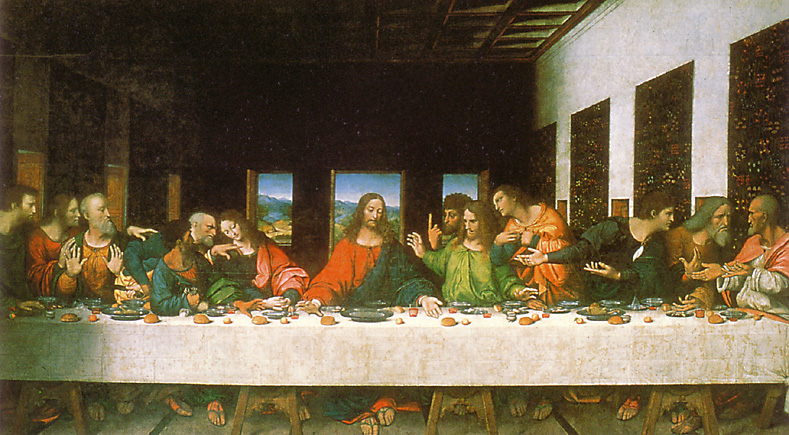Okay, you don't think Christians should agree on everything."If your understanding of what I think is that Christians should agree on everything, then it is very clear that you have completely misunderstood my entire message.
Should we not discuss controversial issues?
Is Biblical truth knowable?
Does truth contradict itself?
If truth doesn't contradict itself, can two contradictory views be correct?
If truth doesn't contradict itself and two people hold conradictory views, doesn't by definition, one of them have to be in error?
More to the point:
If one teaches the bread and the wine is literally changed into the physical body and blood of Jesus Christ, and the other teaches the bread and wine are only symbolical, they can't both be truth can they?
They can't be both be right.
It's one or the other (or some other n option).
*********************
Whoa, there my friend. When Jesus mentions himself as being the Good Shepherd, the shepherd metaphor was much more easily understood by the listeners. They lived in a land of sheep and shepherds and may have been shepherds themselves. And they most likely had Psalm 23 memorized.Did everyone understand the allegory when he said to eat his flesh and drink his blood? Quite the opposite, they took him very literally and called him on it.
John 6:
60 On hearing it, many of his disciples said, "This is a hard teaching. Who can accept it?" 61 Aware that his disciples were grumbling about this, Jesus said to them, "Does this offend you? 62 What if you see the Son of Man ascend to where he was before! 63 The Spirit gives life; the flesh counts for nothing. The words I have spoken to you are spirit and they are life.
Now, when Christ mentions eating his flesh and drinking his blood, those were completely abstract terms to the listeners. Drinking blood was strictly forbidden and eating human flesh was not exactly a common practice in those days either. So Jesus says "the words I have spoken to you are spirit...." In contrast to physical or flesh.
Nicodemus had the same problem with being born again. "Can a man, being born, enter his mother's womb a seccond time, and be born?"
How did Jesus answer? That which is born of the flesh is flesh, that which is born of the Spirit is spirit."
**************************
John 6:
30 So they asked him, "What miraculous sign then will you give that we may see it and believe you? What will you do? 31 Our forefathers ate the manna in the desert; as it is written: 'He gave them bread from heaven to eat.'" 32 Jesus said to them, "I tell you the truth, it is not Moses who has given you the bread from heaven, but it is my Father who gives you the true bread from heaven. 33 For the bread of God is he who comes down from heaven and gives life to the world." 34 "Sir," they said, "from now on give us this bread." 35 Then Jesus declared, "I am the bread of life. He who comes to me will never go hungry, and he who believes in me will never be thirsty."
"He who comes to me will never hunger."
I don't know about you, but I came to Jesus Christ in 1975. And yet, I get hungry every day, (and have a 'slight'
But really, was Christ saying that anyone who comes to Him will never be physically hungry again?
Ditto with physically thirsty.
He was talking about spiritual hunger and thirst.
Wasnt He?
